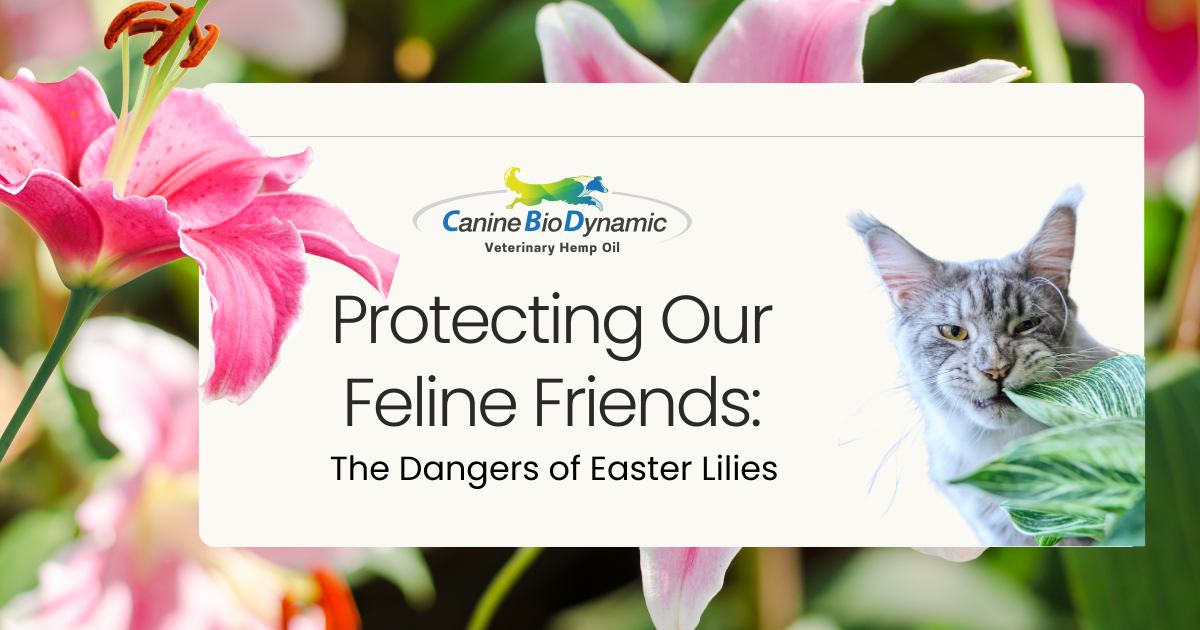Protecting Our Feline Friends: The Dangers of Easter Lilies
Protecting Our Feline Friends: The Dangers of Easter Lilies
A Beautiful Threat
As Easter approaches, many households eagerly adorn their spaces with the vibrant beauty of Easter lilies. These elegant flowers symbolize purity, renewal, and the arrival of spring. However, behind their delicate petals lies a hidden danger, especially for our beloved feline friends. Easter lilies, while stunning to look at, are toxic to cats. In this post, we’ll delve into why Easter lilies pose a threat to our furry companions, how to recognize the symptoms of poisoning, and what steps we can take to keep them safe.
Why Easter Lilies Are Harmful to Cats
First and foremost, it’s crucial to understand why Easter lilies are harmful to cats. These flowers contain toxins called nephrotoxins, primarily concentrated in the leaves, petals, and pollen. When a cat ingests any part of the plant, even in small amounts, it can lead to severe poisoning. Unlike some toxins that may only cause mild discomfort, the toxins in Easter lilies can cause acute kidney failure in cats. This condition, if left untreated, can be fatal within a matter of days.
Recognizing the Signs of Lily Poisoning
Recognizing the symptoms of lily poisoning in cats is vital for prompt intervention. Common signs include vomiting, loss of appetite, lethargy, drooling, and in severe cases, kidney failure, which may manifest as increased thirst and urination. If you suspect your cat has come into contact with or ingested any part of an Easter lily and displays any of these symptoms, it’s crucial to seek immediate veterinary attention. Time is of the essence in treating lily poisoning, and delaying treatment can significantly reduce the chances of a positive outcome.
Treatment for Lily Poisoning
Here’s what treatment for acute kidney failure in cats due to lily poisoning typically involves:
- Immediate veterinary intervention is crucial.
- Hospitalization for intensive care, including:
- Intravenous fluids to flush out the toxins and support kidney function.
- Administration of medications to manage symptoms such as nausea and electrolyte imbalances.
- In severe cases, additional measures may include:
- Dialysis to help remove toxins from the bloodstream.
- Kidney transplantation to restore kidney function.
Keeping Your Cat Safe During Easter
Now that we understand the risks, what steps can we take to protect our feline companions during the Easter season? Here are some essential tips:
Educate Yourself: Spread awareness among friends, family, and fellow pet owners about the dangers of Easter lilies to cats. Many people may not be aware of the toxicity of these flowers, so sharing information can help prevent accidental exposure.
Choose Pet-Friendly Alternatives: Opt for cat-safe flowers and plants to decorate your home during Easter. There are plenty of beautiful options available, such as orchids, roses, and certain types of ferns, that pose no threat to cats.
Keep Easter Lilies Out of Reach: If you receive Easter lilies as a gift or decide to incorporate them into your decorations, ensure they are placed in areas inaccessible to your cats. Remember that cats are curious creatures and can easily jump onto countertops or explore high shelves.
Monitor Your Cat’s Behavior: Keep a close eye on your cat, especially if you have Easter lilies in your home or if they have access to outdoor spaces where these flowers may grow. If you notice any unusual symptoms or behaviors, don’t hesitate to contact your veterinarian.
Act Quickly in Case of Exposure: If you suspect your cat has ingested any part of an Easter lily, don’t wait for symptoms to appear. Take them to the vet immediately, even if they seem fine. Early intervention can significantly improve their prognosis.
Celebrating Easter Responsibly
In conclusion, while Easter lilies may add a touch of elegance to our homes during the holiday season, they pose a severe threat to our feline companions. By being aware of the dangers and taking proactive measures to prevent exposure, we can ensure a safe and joyful Easter for both ourselves and our pets. Let’s celebrate this season of renewal responsibly, keeping our furry friends’ well-being at the forefront of our minds.
CBD works great to manage the symptoms of kidney failure in cats.
Questions about this topic or questions about the use of CBD in dogs or cats?
Contact Dr D at 512 413 2349, [email protected].


